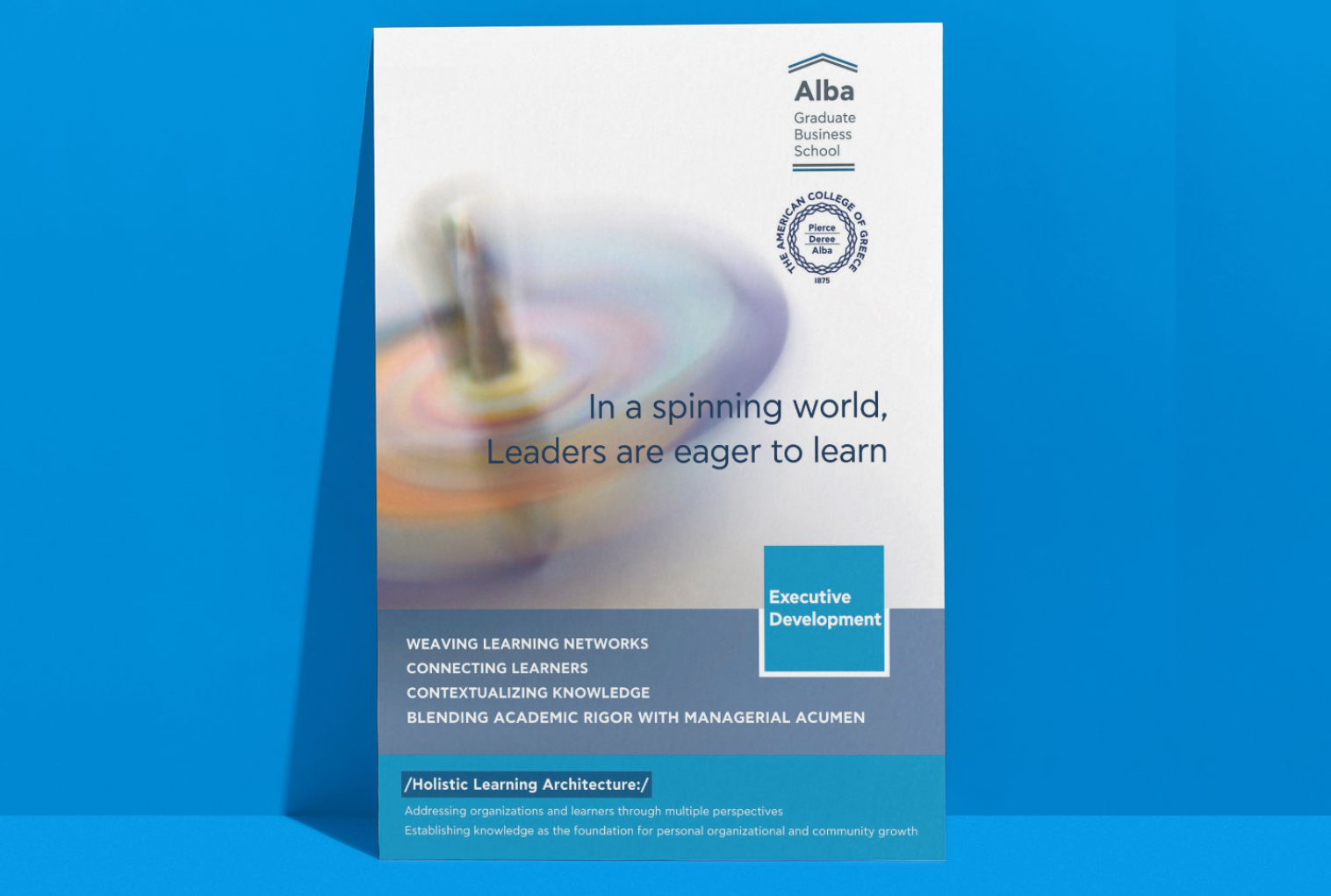.jpg)
The SEV Center of Excellence in Creative Leadership hosted an enlightening presentation and discussion on imagining and shaping our future with the help of science fiction. Dr. Melenia Arouh, Associate Professor of Cinema Studies and Philosophy at The American College of Greece, took center stage with her talk entitled "Visions of Tomorrow: How Science Fiction Helps Us Imagine and Shape the Future."
The event, which took place on January 31, 2024 at Alba Graduate Business School, The American College of Greece, kicked off with a warm welcome by Machi Doumoura, Curator at the SEV Center of Excellence, setting the stage for an evening of exploration and dialogue.
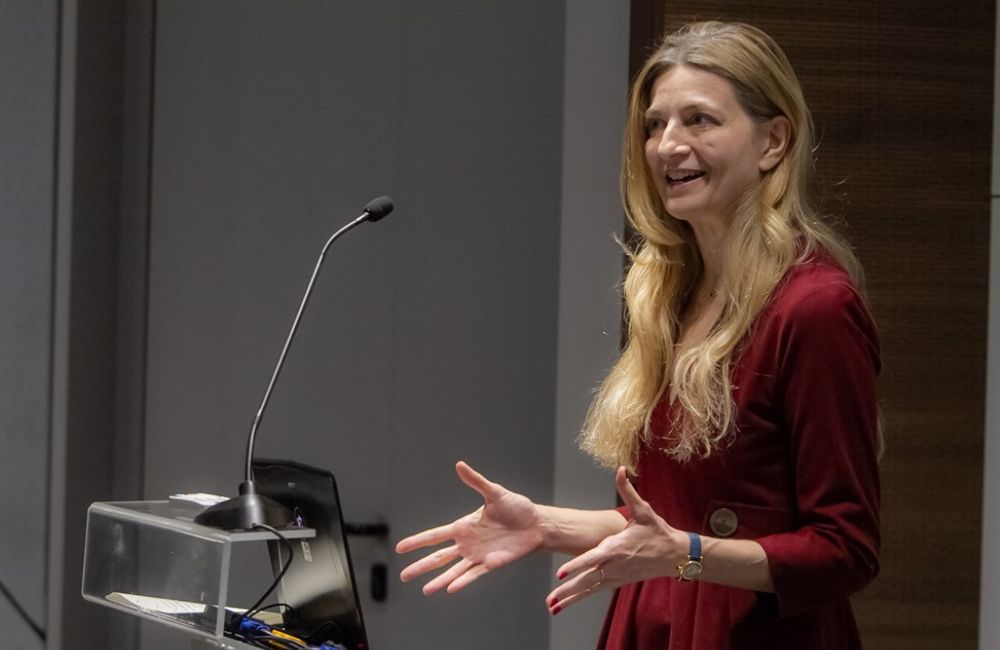
Dora Oikonomou, Director of Human Capital Affairs at SEV the Greek Federation of Enterprises, prefaced the event by prompting the audience to reflect on their favorite science fiction movies, emphasizing the genre's ability to transport us into different futures: “If we lived back in 1966 and were watching Star Trek, we wouldn’t be able to imagine that in a few years, we would land on the moon. If we think of the movie “Minority Report”, we didn’t have biometrics or driverless cars in 2002, but now these are a reality.”
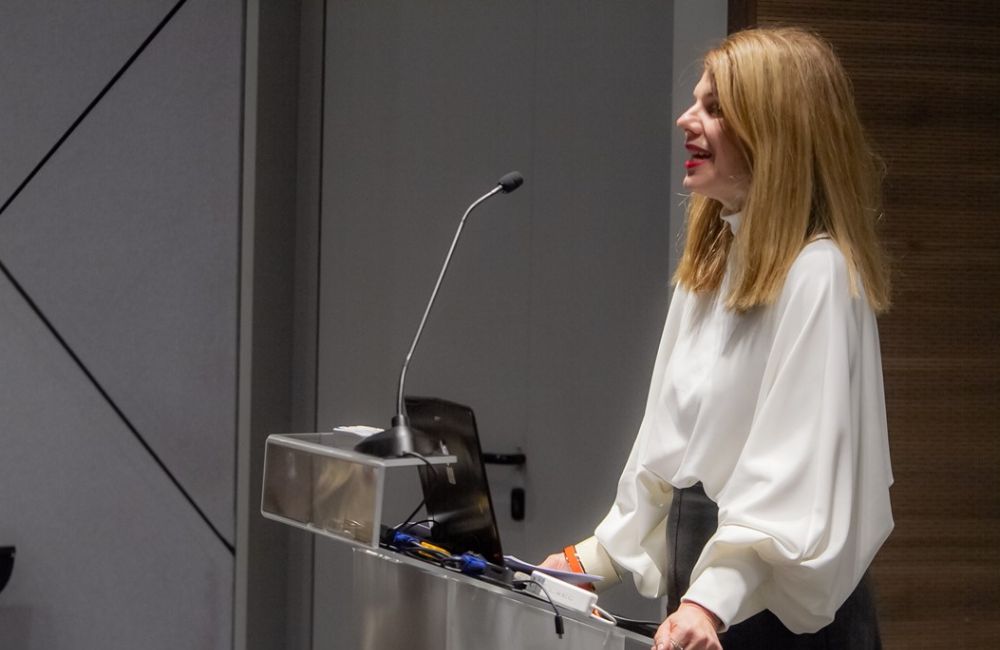
The Dean of Alba, Professor Kostas Axarloglou, in his remarks, highlighted the dichotomy of fear and fascination with the technologies of the future. He described science fiction as a limitless laboratory where individuals can envision and discuss the future without constraints, fostering innovation and sparking meaningful conversations about what lies ahead: “This imaginative space facilitates discussions about the future, allowing us to experience it in the present, inspiring and influencing real-world impact.”
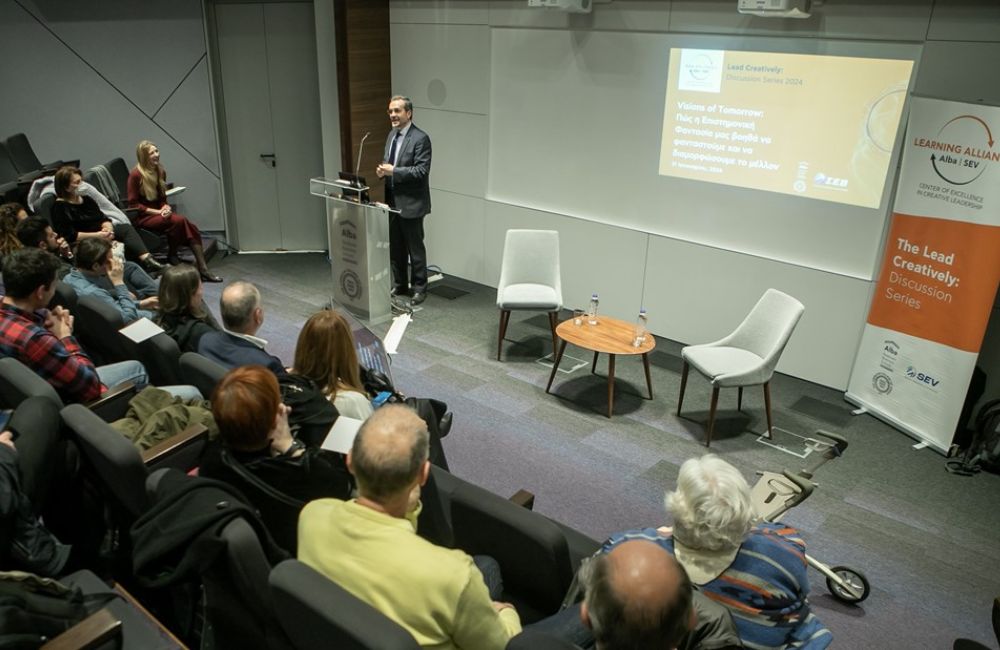
Professor Nikos Mylonopoulos, Director of the SEV Center of Excellence, took the stage and drew connections between science fiction and business, citing real-world examples such as Apple's recent product launch that drew parallels with Spielberg's directorial mannerisms in the film Ready Player One. He emphasized how science fiction is not just a narrative genre but a tool that can influence strategic decision-making and inspire innovation: “More than making projections, science fiction inspires us to open our minds, fostering innovation in businesses by challenging assumptions and pushing boundaries in a rapidly evolving external environment. It prompts us to think expansively about the choices we make today and their implications for the future.”
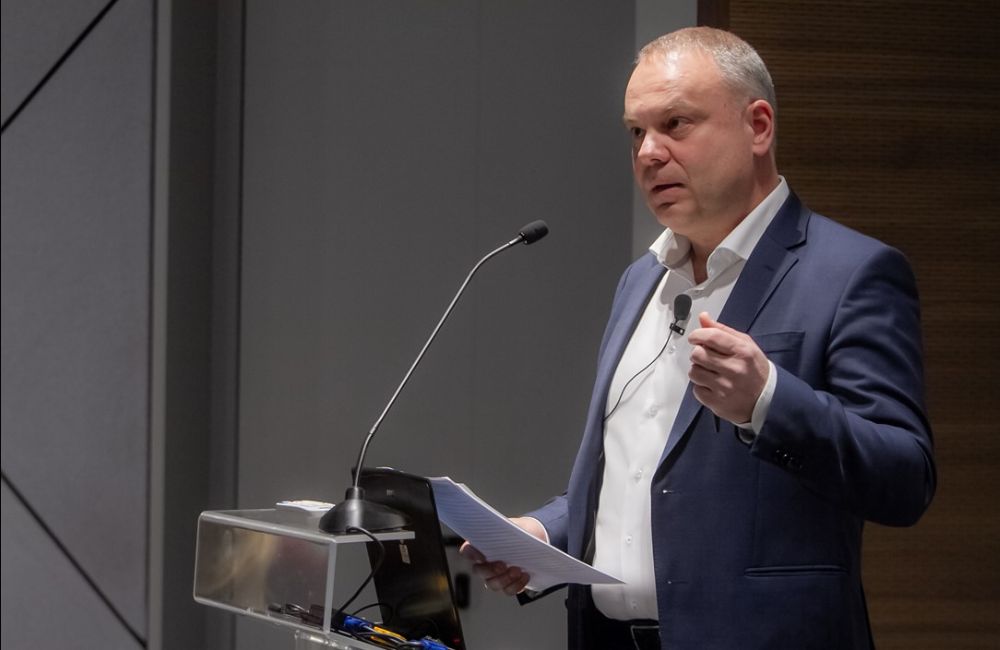
Dr. Arouh's presentation transported us to the intricate landscape of science fiction’s prophetic prowess, where predicting the future is both an art and a science. Referencing Asimov's 1939 short story, Dr. Arouh exposed the age-old resistance to technological change and the role of science fiction in making sense of it.
Dr. Arouh illustrated the connection between science fiction and actual technological advancements with examples like flip phones, drones, and self-driving cars that were prefigured in early stories. She referred to Stanisław Lem's 1964 story about evolving artificial life forms, foreshadowing discussions on artificial intelligence, while Asimov's Three Laws of Robotics are echoed in Google's recent "Robot Constitution." According to the first article of the Robot Constitution, "A robot may not injure a human being," taken from Asimov’s first law that “a robot will not harm a human being, nor will it by its inaction allow a human being to be harmed.”
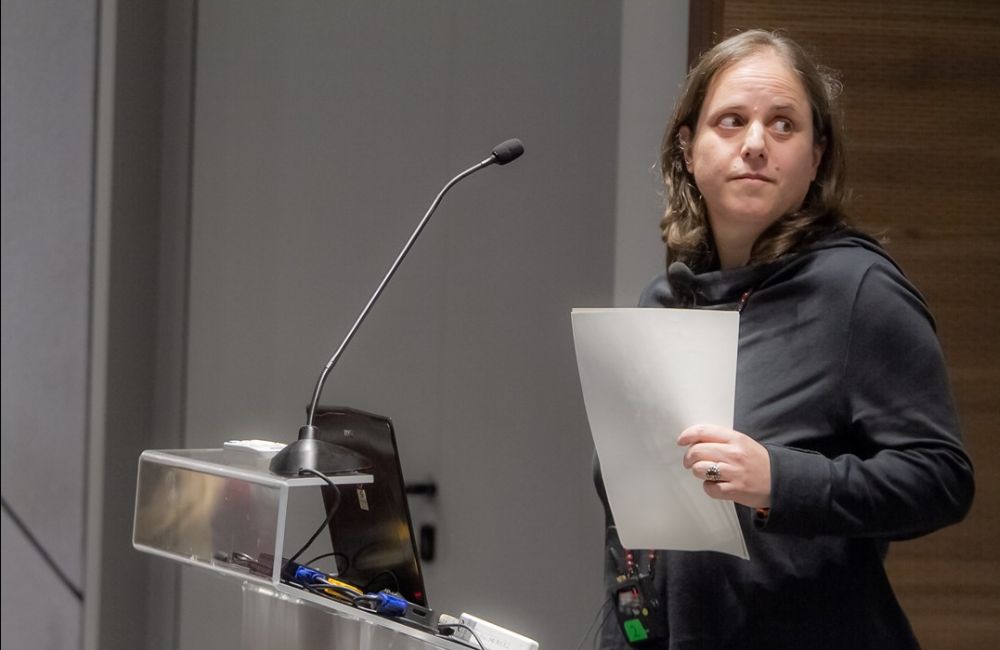
Dr. Arouh expanded on what connects predictions to reality when she stated that science fiction requires a state of temporal erosion: the past, present, and future must coexist for the story to emerge: “The past dissolves into the present, allowing us to see clearly the problems and their roots, and the synthesis of this knowledge is projected into the future. It's like time travel without the messy paradoxes, a narrative blender where the past dissolves into the present, giving us a cocktail of problems with a splash of futuristic synthesis.”
However, Dr. Arouh noted that science fiction often leans towards dystopian scenarios, reflecting societal fears, challenges, and phobias. The prevalence of dystopias can be traced back to the 20th century's deep pessimism, influenced by devastating wars and a loss of faith in technological progress: “Science fiction as a narrative genre rarely makes positive predictions. Quite the opposite. As an allegorical form of expression, it allows writers to highlight fears and panics, problems and challenges of our society. What is our problem today? What is panicking us? What threatens us with division? They identify ills, threats and phobias and project them into the future. As such, many science fiction stories present us with a dystopian future: horrific speculations about the prevalence of machines and biotechnology, nuclear holocaust, apocalypse scenarios, and Scarlett Johansson as an operating system that flirts and falls in love.”
In conclusion, Dr. Arouh acknowledged the entertainment aspect of science fiction, emphasizing its role in providing alternatives and hope. She closed by quoting Microsoft's Copilot: "Science fiction has the power to inspire us to imagine and create a better future for ourselves and for generations to come.”
A lively discussion ensued during the Q&A session, with Dr. Arouh addressing topics ranging from the role of science fiction in education to its influence on managerial thinking in a corporate environment, while urging attendees to view it as a means for expanding their thinking and fostering innovation.
Watch the event in its entirety here.

